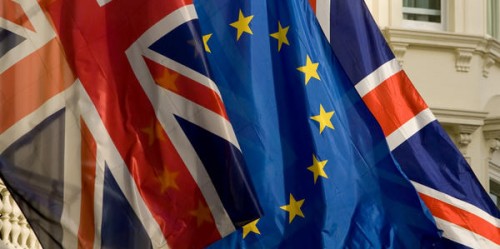
Before the end of 2017 we are going to have an “in or out” referendum on our membership of the European Union. In the meantime the government will be negotiating what appears at the moment to be some pretty minor changes to our terms of membership. What should Labour do?
At the moment, Labour’s stance seems largely to be to declare its determination to support continuing membership irrespective of the outcome of the negotiations and to say little if anything about what changes, if any, Labour would like to see made. This could be a catastrophic mistake for a number of reasons.
First, there is a large amount that most Labour MPs and Party activists would like to see changed. Few want to see the UK as part of a United States of Europe. Not many are happy to see us footing the huge net cost of our membership – a total of £11.4bn last year. Few are happy with the Common Agricultural and Common Fisheries Policies. Not many really think it sensible to turn away Indian IT programmers and Chinese students while there are no barriers to entry in the UK for people from Central Europe.
Most Labour MPs and activists would also prefer to have legislation on social and other matters produced in Westminster rather than Brussels. Everyone agrees that we need to protect our position if we are in the EU but not the Euro. If most Labour people want these issues addressed, why don’t we campaign to get changes made?
Second, these concerns are very widely shared throughout the country and, in particular, by the millions of potential voters who have decamped to supporting other parties, especially UKIP. These people find Labour’s current policy stance of supporting the EU in everything it does incomprehensible. We urgently need to get them back in the fold by backing calls for changes which most Labour people want anyway.
Third, supporting our EU membership irrespective of what renegotiation might bring clearly weakens the government’s hands in getting a better deal for the UK. Why should anyone in Brussels bother to make any concessions to us if the result of the referendum is regarded by them as bound to being a vote for staying in?
Fourth, it is this sort of approach which may in fact deliver to those who are most in favour of our EU membership exactly the opposite to the result they want to see. If the changes in membership achieved by the government are as modest as seems likely they will be, buttressed by rigging the referendum in favour of an “in” result as appears to be happening, for example over the recent “purdah” controversy, the outcome may well be an upsurge of support for voting “out”, mirroring the anti-establishment outcome of the recent referendum in Greece. Nor would a narrow vote in favour of staying in be that much better. It would still leave a large Eurosceptic movement in the country, fed up that so little change had been achieved.
Surely, in these circumstances, a much better approach for Labour would be to campaign for the changes which in fact the vast majority of people want. Of course, we may not get everything on the renegotiation agenda, but those who don’t ask don’t get, and the fact that so much is currently going wrong in the EU may make our hand much stronger than is often realised. Pressing for these changes would re-engage Labour with a large block of voters which the Party badly needs to attract back.
It is the right thing to do for the country. It would outflank the Tories. And if, as a result of the current turmoil in the EU we could achieve most, if not all, of what we want, there would then very probably be a large majority for staying in, making us, in the process, a more stable and supportive partner for the other EU Member States.
Why don’t we doesn’t Labour adopt a strategy, with so much going for it, along these lines?




More from LabourList
Government abandons plans to delay 30 local elections in England
‘The cost of living crisis is still Britain’s defining political challenge’
‘Nurses are finally getting the recognition they deserve’